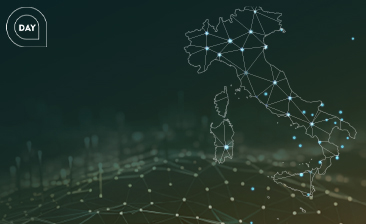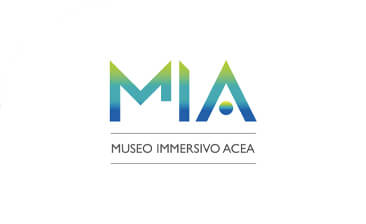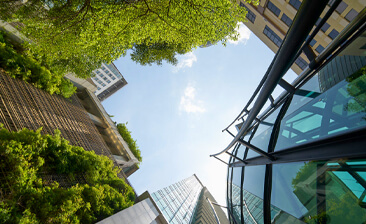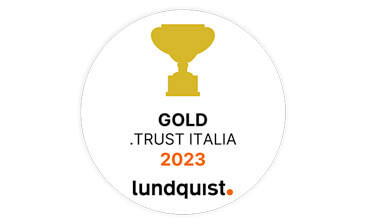Institutions and experts in the field discussing new models of growth oriented to environment and social impact.
A study presented by The European House - Ambrosetti reveals Acea’s contribution to value creation and sustainable development across the country: € 3.1 billion of added value on GDP generated in 2020.
The third edition of Acea Sustainability Day, an initiative showing the group’s will to propose a moment of debate over sustainability issues, has taken place today at “Lanterna” in Rome. At the core of 2021 edition, the importance to plan an ecological transition which could embrace not only environmental issues, but also economic and social matters, and focus on the role of the individual, as a key role of this transition and main beneficiary of its effects. In the background, the scenarios of a near future where institutions, markets, enterprises and civil society will be called to rethink all production models to combine economic growth and sustainable development, pursuing the objectives of the 2030 Agenda and EU Green Deal.
Before what has been an alternation of three rounding tables moderated by the editor-in-chief of Corriere della Sera Antonella Baccaro, the event was opened by Elena Bonetti, Minister for Equal Opportunities and Family, interviewed by Fiorenza Sarzanini, vice director of Corriere della Sera. The first panel, entitled “Fair transition: ecological, social, economic”, hosted President of Fondazione Utilitatis Stefano Pareglio, Mario Calderini, full professor at School of Management at Politecnico di Milano, and President of Young Ambassador Society, Chair Y20 Italy Alberta Pelino. The CEO of Acea Giuseppe Gola and the Acea Investor Relations & Sustainability Manager Stefano Songini presented the study carried out by The European House - Ambrosetti on Acea’s contribution in terms of economic, environmental, social and cognitive capital for value creation and sustainable development across the country. Closing the event, the session dedicated to the “Applicative dimensions of transition” was attended by Acea CEO, Francesca Isgrò, President of Enav, Clara Poletti, member of Arera and President of Acer, and Patrizia Celia, Head of Large Caps, Investment Vehicles & Market Intelligence of Borsa Italiana.
“All challenges deriving from ecological transition – stated Giuseppe Gola, CEO of ACEA – ask for a shared response aimed at putting into action initiatives guided by the most modern paradigms of sustainable development, taking into account not only environmental, but also social impact. The industrial policy of our group is in line with green and circular economy criteria and, as reported by The European House - Ambrosetti, it had a positive, direct and indirect impact on 2020 GDP, for an estimated total of € 3.1 billion of added value; every Euro of added value generated by Acea activates € 1.22 billion in the entire economic cycle. In addition, with total investment reaching € 907 million, Acea places itself among the first 15 companies in the Italian industrial sector, with its value in considerable growth during the last five years, equal to +14.4% annual average.”
The report presented by Ambrosetti analysed the activity of the Group in 2020. Considering the most impacting activities on environment and fight against climate change, energy policies encouraging the use of renewable sources allowed to avoid emission of 210,000 tons of CO2 in 2020, a quantity equal to that absorbed in a year by 10.5 million trees, three times the number of trees in all Italian capital cities. 68% of electricity produced by the Group, in fact, is generated from renewable sources. As far as water sector is concerned, our company is committed to a sustainable management of water by protecting water resources, containing volumes of losses and improving network efficiency. These aspects place the group as first national provider for number of served citizens (9 million across 5 regions), investments (EUR 1.7 billion in the last 5 years) and for kilometres of distribution network (over 53,000 Km, four times the distance between Rome and New York). Regarding waste treatment, in 2020 ACEA processed more than 1.45 million tonnes of waste, placing itself as a reference operator for Central Italy.
On a social perspective, Acea’s workforce, composed of more than 7,500 people, records the third performance for employment growth in Italian industrial companies in the last five years. Considering also indirect and induced impact, the contribution in employment reaches a total equivalent of 27,000 workplaces: for each employee in Acea, in fact, 2.5 further workplaces are activated.
Due to sustainable policies put into force, our company is placed third in the Borsa Italiana MID CAP segment for the Indice di Eccellenza della Govenrnace (Index for Governance Excellence) of The European House – Ambrosetti, providing assessment for five areas: our group is ranked first in the sub-segment concerning sustainability governance.”
The path started by the Group is an important mainstay on which building a Plan for ecological transition of our Company, which will be at the heart of next industrial plan, pursuing the long-term objectives set forth in 2030 Agenda. Among these, the reduction by 55% of greenhouse gas emission is one of the priorities. In this sense, the Group is planning new working tables called “working group innosostenibili (in honour of sustainability)” in collaboration with academic and technological partners to implement this plan for ecological transition with actions and initiatives related to sustainability macro-themes: from decarbonisation to sustainable mobility, from protection of water resources to circular economy.
Discover the latest news and initiatives of the Acea Group

Acea for World Energy Saving Day

Visit the virtual museum about the history of the Acea Group

The channel for the commercial requests on land urbanisation

Acea turns the spotlight on the Rome Film Festival 2023

Acea is in the "Gold class" in the .trust research

Read more about our culture of inclusiveness